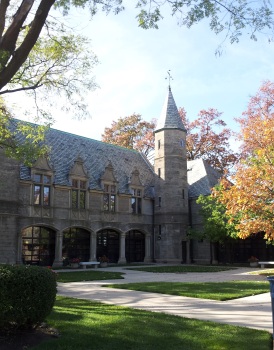Up to 12 full-time professors to be terminated?
By: Rebecca Panico
Despite unanimous or nearly unanimous support from colleagues, 12 full-time, tenure-track professors received negative endorsements from Vice President of Academic Affairs Jeffrey Toney, effectively leading to their termination in 2015.
Three of the 12 professors are in their fifth year as tenure-track faculty, which is the year they will either be approved or denied for tenure.
Last year, six of 10 professors were denied tenure and fired in their fifth year of teaching at Kean, which led to a No-Confidence Vote by the Kean Federation of Teachers against VPAA Jeffrey Toney. The vote resulted in a 96 percent disapproval rating for Toney, who is essentially the head of all academics at Kean.
Toney’s endorsements will be sent to Kean President Dawood Farahi, who could overturn Toney’s decisions if he so chooses. Last year, Farahi overturned one negative review.
Farahi’s decisions will then go to the Board of Trustees who meet on Dec. 6 in Ocean County College in Toms River
The 15-member committee is the final governing body for Kean. Board members are appointed by New Jersey’s governor, with the approval of local state senators.
Tenure was created in the late 19th century to protect professors’ academic freedom to teach and research controversial subjects, but has recently come under fire as simply a way to get lifetime job security.
But Dr. James Castiglione, KFT president, contends that at Kean, it is a bit more political.
“I think the president is trying to diminish the influence of tenured faculty,” stated Castiglione. “If you don’t have tenure, they [the administration] can fire you at any time. In academia, the students should expect that their teachers are going to be doing what they believe is in the best interest of the students […] But if they don’t have tenure, how can they stand up to administration?”
The administration, however, believes its decisions to grant tenure or fire faculty will ultimately benefit students as well.
“Since tenure is tied to a personnel action, we cannot comment on positive or negative reviews, other than to say that our decision is reflective of what we believe is in the best interests of our students today and our students in the future,” stated Marsha McCarthy, Director of University Relations. “Our faculty are held to high standards so that the University can continue to develop and flourish.”
To receive tenure at Kean, faculty must work for five years, and pass peer and student evaluations as well as make contributions to the academic community by serving the Kean in various capacities and getting published in peer-reviewed scholarly journals.
However, some faculty said that the specific scores of peer and student evaluations and the exact number of publications are purposefully never disclosed.
“The administration will not give us in codified, written language what their standards are so they can keep shifting them,” stated Richard Katz, a professor of English. “So if you’re a good teacher they [the administration] can say, ‘Oh well, you didn’t do this.’”
James Capone, a professor of business law and accounting, reported that two tenure track faculty members from his department were not recommended by Toney for retention.
“Both had the unanimous support of the School of Accounting and Finance and College of Business and Public Management’s Retention Committees,” stated Capone in an e-mail. “What does this action say about the University’s commitment to the Global Business Program? I hope that Dr. Farahi will reverse Dr. Toney’s recommendation and recommend their retention to the Board of Trustees at their December 6th meeting.”
The number of non-tenure track faculty has drastically diminished at Kean over the years. According to the Office of Institutional Records at Kean, the number of full-time faculty who are not tenure-track has increased from 12 to 93 with the advent of hiring full-time lecturers who are reappointed on an annual basis but are never considered for tenure.
The number of tenured individuals has dropped from 267 in 2010 to 234 in 2014. Kean also employs more than 1,000 adjunct professors, who are paid by the course and do not receive benefits.
Kean also has the lowest, full-time professor-to-student ratio among New Jersey’s public universities. Kean’s ratio was nearly 44 to 1 in 2012, according to the New Jersey Commission on Higher Education and the Council of New Jersey State College Locals, while the other public universities in New Jersey had ratios ranging from 1 to 21 to 1 to 35 students.
The KFT says that handling more students gives professors less time to focus on each individual student’s needs.
The names of those up for tenure are usually not made public, and many faculty members did not want to comment on the issue either. Katz attributed the lack of conversation to fear.
“It’s a frightening environment here and I’d understand why people – especially those that are not tenured – why they wouldn’t speak out,” stated Katz. “They’re frightened. But he [President Farahi] wants them frightened. That’s the mode of control here: fear.”


You must be logged in to post a comment.